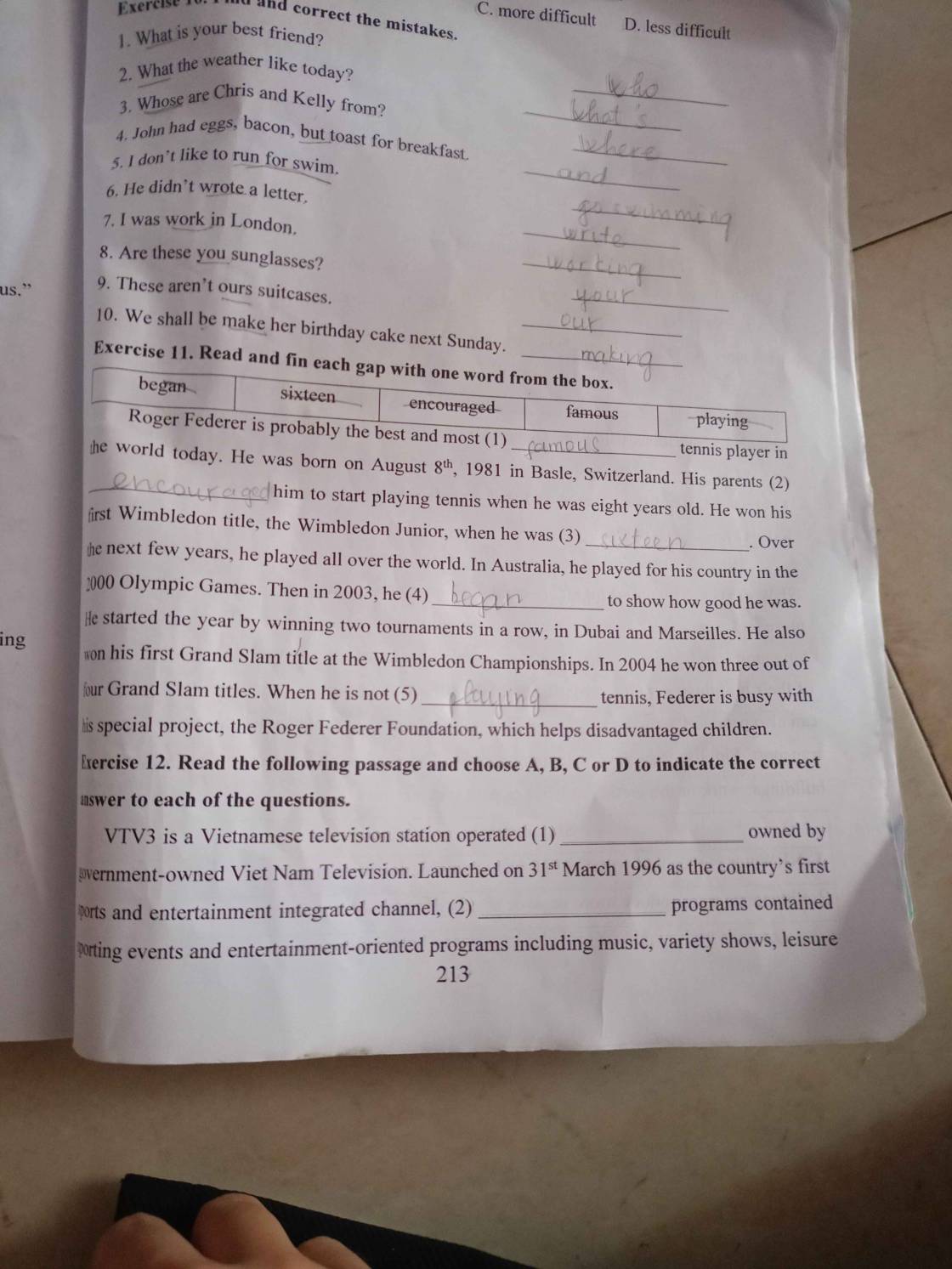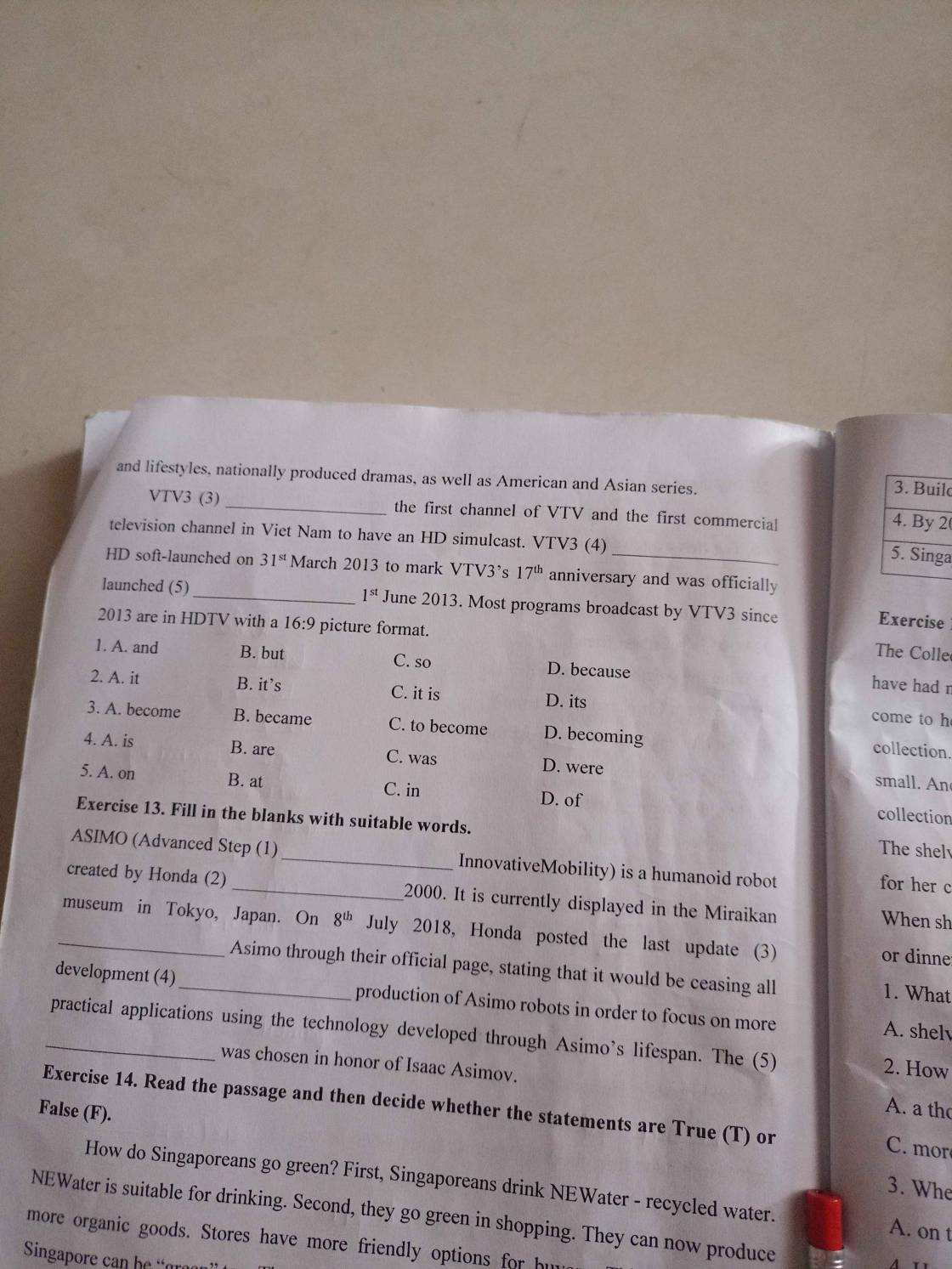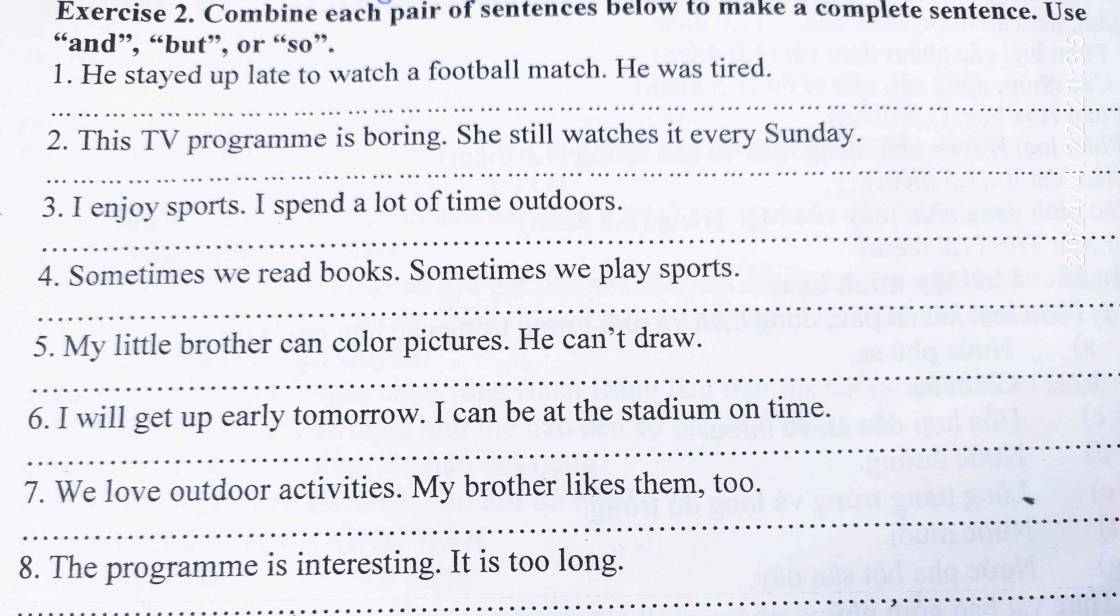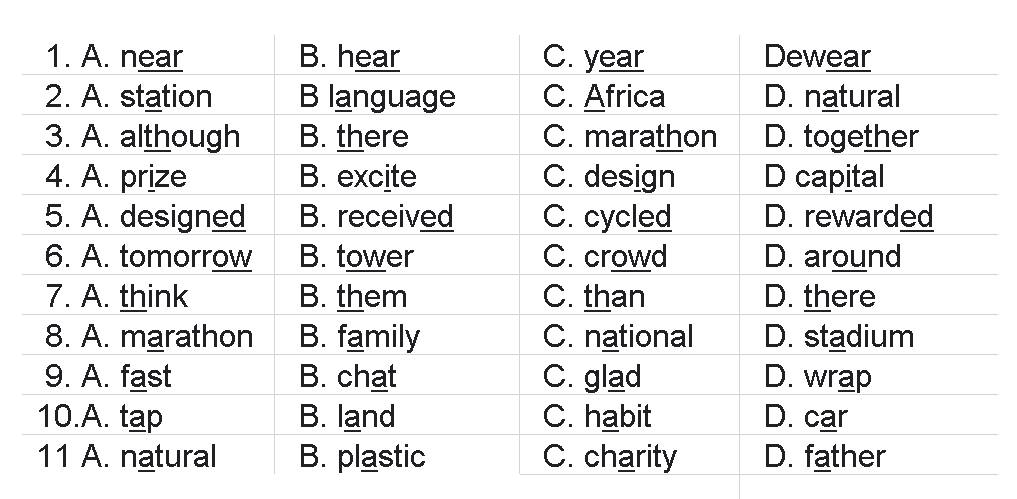Tạo một bài nói Tiếng Anh theo chủ đề: What will you save energy?
Hãy nhập câu hỏi của bạn vào đây, nếu là tài khoản VIP, bạn sẽ được ưu tiên trả lời.



He stayed up late to watch a football match so he was tired
This TV programme is boring but she still watches it every Sunday.
I enjoy sports so i spend a lot of time outdoors.
Sometimes we read books but sometimes we play sports.
My little brother can color pictures but he cant draw
i will get up early tomorrow so i can be at the stadium on time
we love outdoor activities and my brother likes them, too
The programme is interesting but it is too long
1 He stayed up late to watch a football match, so he was tired
2 This TV programme is boring, but she still watches it every Sunday
3 I enjoy sports, so I spend a lot of time outdoors
4 Some times we read books, and sometimes we play sports

Ôi! Thật là chú mèo đáng yêu(Dễ thương)
Tôi thích mèo, còn bạn có thích mèo không?
Làm ơn hãy giết chúng đi!
Tại sao bạn phải làm điều đó!?
Tôi tức, bạn thật là một người điên.
Bởi vì nó sẽ giết chúng ta.
Nhưng anh ấy trông không giống như 1 người xấu.
Thật dễ thương, dễ thương, dễ thương, dễ thương.
tick cho mik nha bn. Đảm bảo mik ko tra chj google lun

- The use of energy sources may be leads to air pollution, climate change, water pollution, thermal pollution,... But in my city, people use energy properly everyday so we haven't seen any problems yet.
* ở nơi mình sống là thế, nên bạn thay sao cho phù hợp với nơi bạn sống nhé!
- I think we can save energy by using fewer household electrical appliances, use energy economically, turn off all lights, fans, air conditioner when not use, etc.
Question 1:
In my city, there are several potential problems associated with the use of energy sources:
1. Pollution: The burning of fossil fuels for energy production can release harmful pollutants into the air, leading to air pollution and contributing to climate change. This pollution can have adverse effects on public health and the environment.
2. Resource Depletion: Dependence on finite resources like coal, oil, and natural gas for energy generation can lead to resource depletion over time. As these resources become scarcer, it may lead to price increases and economic instability.
3. Environmental Degradation: Extracting and processing fossil fuels can cause environmental degradation, such as deforestation, habitat destruction, and water pollution. This can harm ecosystems and biodiversity, disrupting natural balances.
4. Greenhouse Gas Emissions: The combustion of fossil fuels releases greenhouse gases like carbon dioxide into the atmosphere, contributing to global warming and climate change. This can lead to more frequent and severe weather events, rising sea levels, and disruptions to ecosystems and human societies.
5. Energy Inefficiency: Some energy sources, such as older power plants or outdated infrastructure, may be inefficient in converting fuel into usable energy. This inefficiency leads to wastage of resources and higher energy costs for consumers.
6. Dependency on Imports: If a city relies heavily on imported energy sources, such as oil or natural gas, it becomes vulnerable to price fluctuations and geopolitical tensions in supplier countries. Diversifying energy sources and investing in local renewable energy can help reduce this dependency.
Addressing these problems requires a shift towards cleaner and more sustainable energy sources, such as renewable energy (solar, wind, hydroelectric) and increased energy efficiency measures. Transitioning to these alternatives can mitigate environmental impacts, enhance energy security, and promote economic development.
Question 2:
In my city, there are several ways to save energy sources:
1. Saving electricity: Turn off lights, fans, and electronic devices when not in use to save electricity. Use energy-efficient LED bulbs instead of traditional incandescent bulbs.
2. Using renewable energy: Encourage the use of renewable energy sources such as solar panels and wind turbines to generate electricity. These sources are sustainable and do not deplete natural resources.
3. Using public transportation: Use public transportation such as buses or trains instead of personal vehicles to reduce fuel consumption and air pollution. Walking or biking for short distances is also a good way to save energy.
4. Conserving water: Saving water also helps save energy because energy is used to pump, treat, and heat water. Take shorter showers, fix leaks, and use water-saving devices to conserve water.
5. Insulating homes: Properly insulating homes can reduce the need for heating and cooling, saving energy. Install insulation in walls, ceilings, and floors, and use energy-efficient windows and doors to keep homes comfortable.
6. Planting trees: Trees provide shade and reduce the need for air conditioning in buildings, saving energy. Planting trees in cities helps cool the environment and improve air quality.
By implementing these measures, we can effectively save energy sources and create a more sustainable city for the future.

1. She is ten years younger than her husband.
2. It takes me 1 hour everyday to do yoga.
#hoctot
tick cho mình nha ^^





Some simple ways that we can save energy in our everyday lives:
1. Turn Off Lights When Not in Use: When you leave a room, make sure to turn off the lights. It may seem like a small thing, but it can make a big difference in reducing energy consumption.
2. Unplug Electronics: Many electronics continue to use energy even when they're turned off. So, when you're not using your computer, TV, or game console, remember to unplug them or use a power strip to easily turn them all off at once.
3. Use Energy-Efficient Appliances: When it's time to replace old appliances, choose ones that are energy-efficient. Look for the Energy Star label, which indicates that the appliance meets certain energy-saving standards.
4. Limit Water Usage: Saving water also saves energy. Take shorter showers, fix any leaks, and only run the dishwasher or washing machine when they're full.
5. Adjust Thermostat: In the winter, lower your thermostat a few degrees and wear a sweater to stay warm. In the summer, raise the thermostat and use fans to cool down instead of relying solely on air conditioning.
6. Choose Energy-Saving Bulbs: Replace old incandescent light bulbs with energy-saving LED bulbs. They use less energy and last much longer.
7. Reduce, Reuse, Recycle: By reducing the amount of waste we produce, we can also save energy. Try to buy products with minimal packaging, and always recycle items like paper, plastic, and glass.
Title: "How to Save Energy: Simple Steps for a Greener Future"
In today's world, energy conservation is more important than ever. With the increasing demand for energy and the environmental impact of its production, finding ways to save energy has become a global priority. Fortunately, there are many simple steps that each of us can take to contribute to a greener and more sustainable future. Let's explore some practical tips on how you can save energy in your daily life.
One of the easiest ways to save energy is to simply turn off lights, TVs, computers, and other electronics when you're not using them. This simple habit can significantly reduce your energy consumption over time.
When it's time to replace old appliances, opt for energy-efficient models. Look for appliances with the ENERGY STAR label, which indicates that they meet strict energy efficiency guidelines set by the U.S. Environmental Protection Agency.
Even when electronic devices are not in use, they continue to draw power if they're plugged in. Get into the habit of unplugging chargers, power adapters, and other devices when they're not in use to save energy.
Heating and cooling account for a significant portion of home energy use. Lower your thermostat in the winter and raise it in the summer to reduce energy consumption. Consider installing a programmable thermostat to automatically adjust the temperature based on your schedule.
Proper insulation and sealing leaks in your home can help prevent energy loss. Check for drafts around windows, doors, and vents, and use weatherstripping or caulking to seal them. Adding insulation to your attic and walls can also help reduce heating and cooling costs.
Replace old incandescent light bulbs with energy-efficient LED or CFL bulbs. These bulbs use less energy and last longer, saving you money on your energy bills in the long run.
Lowering the temperature on your water heater can save energy and reduce the risk of scalding. Aim for a temperature of around 120 degrees Fahrenheit (49 degrees Celsius) for optimal energy efficiency.
By implementing these simple strategies, you can make a significant difference in your energy consumption and contribute to a more sustainable future for generations to come. Saving energy not only helps protect the environment but also saves you money on your utility bills. So let's all do our part to conserve energy and create a greener world for future generations.